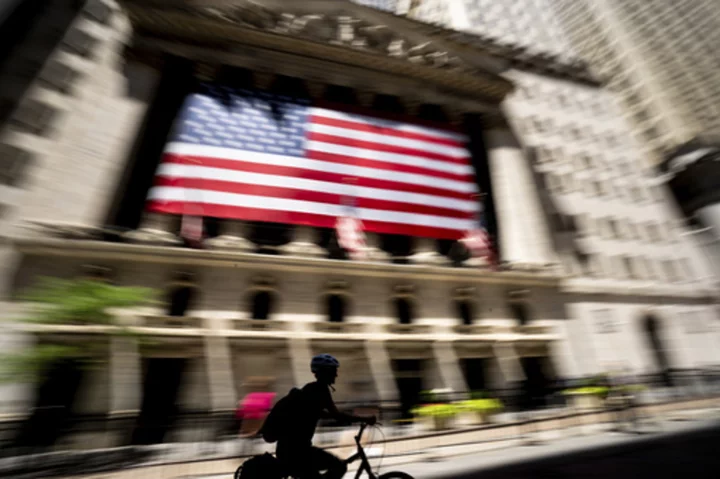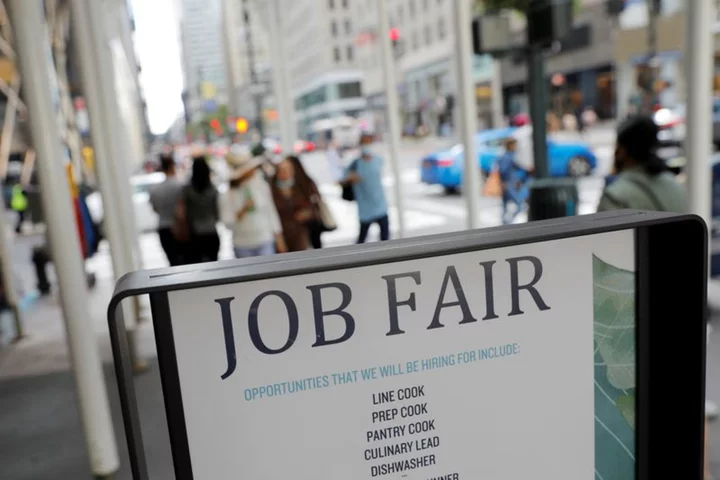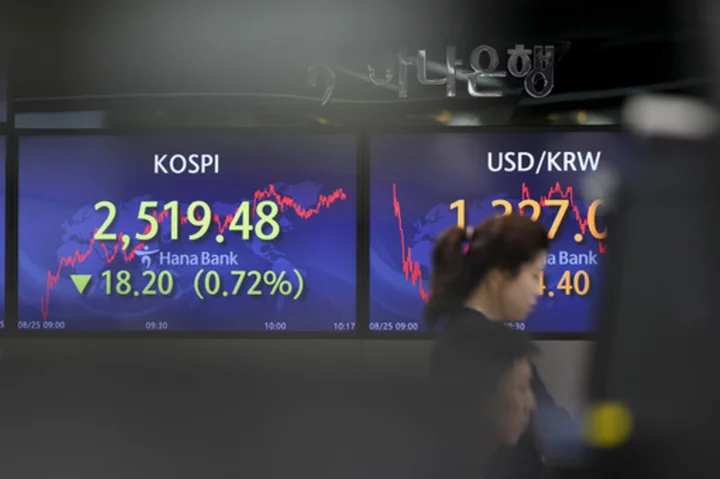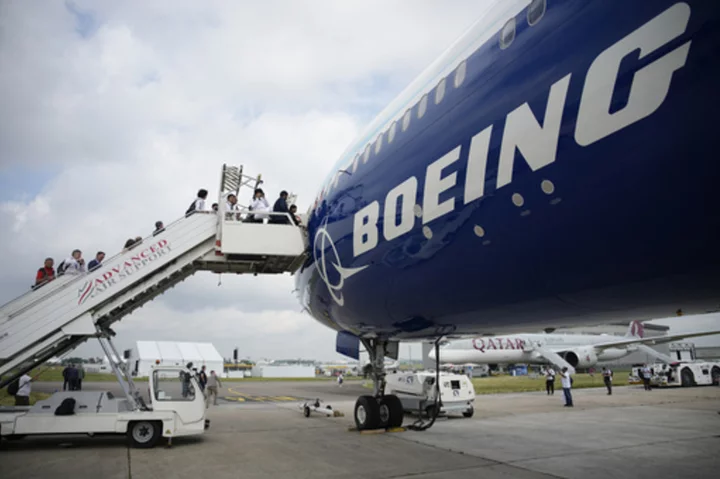NEW YORK (AP) — Stocks are opening higher on Wall Street, keeping major indexes on track for another weekly gain. The S&P 500 was up 0.4%. The Dow was up 69 points, or 0.2%, and the Nasdaq composite was up 0.5%. The S&P 500 is holding on to a gain of 1% for the week, and is headed for its eighth weekly gain in the last 10. More earnings reports are coming in from U.S. companies. Scholastic shot up 13.8% after the publisher reported much higher earnings than analysts were expecting. Marketing and communications company Interpublic sank 7.9% after cutting its outlook.
THIS IS A BREAKING NEWS UPDATE. AP’s earlier story follows below.
BANGKOK (AP) — Shares were mixed Friday in Europe and Asia after the latest rally on Wall Street fizzled, with big declines for Tesla, Netflix and other big tech-oriented stocks.
Benchmarks rose in London, Paris and Hong Kong but fell in Frankfurt, Tokyo and Shanghai. U.S. futures edged higher and oil prices also climbed.
Big Tech stocks have rallied hard this year, helping drive the big gains for Wall Street's S&P 500. But technology companies have been forecasting weakness ahead, undermining that key driver of upward momentum.
Most tech companies were steady or higher in pre-market trading early Friday.
Germany's DAX lost 0.4% to 16,142.46 and the CAC 40 in Paris gained 0.2% to 7,401.14. In London, the FTSE 100 was up less than 0.1% at 7,650.74.
The future for the S&P 500 was 0.2% higher and that for the Dow Jones Industrial Average was up 0.1%. On Thursday, the S&P 500 fell 0.7%, while the Nasdaq lost 2.1%, its biggest drop in more than four months. The Dow, which has fewer tech stocks, gained 0.5%.
In Asian trading, Taiwan's Taiex 0.8% fell after TSMC, the world's biggest manufacturer of computer chips, said it expects its sales to fall 10% this year as demand wanes. It also said it would not meet a 2024 target for starting production at a factory under construction in Arizona. TSMC's shares fell 3.3%.
Japan reported consumer inflation edged higher in June, from 3.2% to 3.3%, but mainly due to increases in electricity rates. Price increases excluding energy and volatile food costs fell. That eases pressure on the central bank to adjust the ultra-lax monetary policy that it has kept in place for over a decade to counter sluggish economic growth.
Tokyo's Nikkei 225 index lost 0.6% to 32,304.25, while the S&P/ASX 200 declined 0.2% to 7,313.90. The Shanghai Composite index slipped 0.2% to 3,167.75. India's Sensex lost 1.2% to 66,736.75.
In Seoul, the Kospi gained 0.4% to 2,609.76. Hong Kong's Hang Seng index advanced 0.8% to 19,075.26. Thailand's SET rose 0.5%.
A report Thursday suggested the U.S. job market remains remarkably solid. Fewer workers applied for unemployment benefits last week than expected, an indication that layoffs aren’t worsening.
The strong job market has helped American households continue spending despite much higher interest rates meant to bring down inflation, and that has helped keep the economy out of a long-predicted recession.
Investors are puzzling over an economy that may be too hot or too cold, with risks of recession appearing to recede as hopes grow for a “soft landing” for the economy, Stephen Innes of SPI Asset Management said in a commentary.
“So, for now, however, investors are likely waiting on further evidence of soft landing dynamics to come into play,” he said.
In other trading Friday, U.S. benchmark crude oil gained 55 cents to $76.20 per barrel in electronic trading on the New York Mercantile Exchange. It picked up 36 cents to $75.65 on Thursday.
Brent crude oil, the pricing basis for international trading, rose 57 cents to $80.21 a barrel.
The U.S. dollar rose to 141.79 Japanese yen from 140.07 yen. The euro was unchanged at $1.1131.









